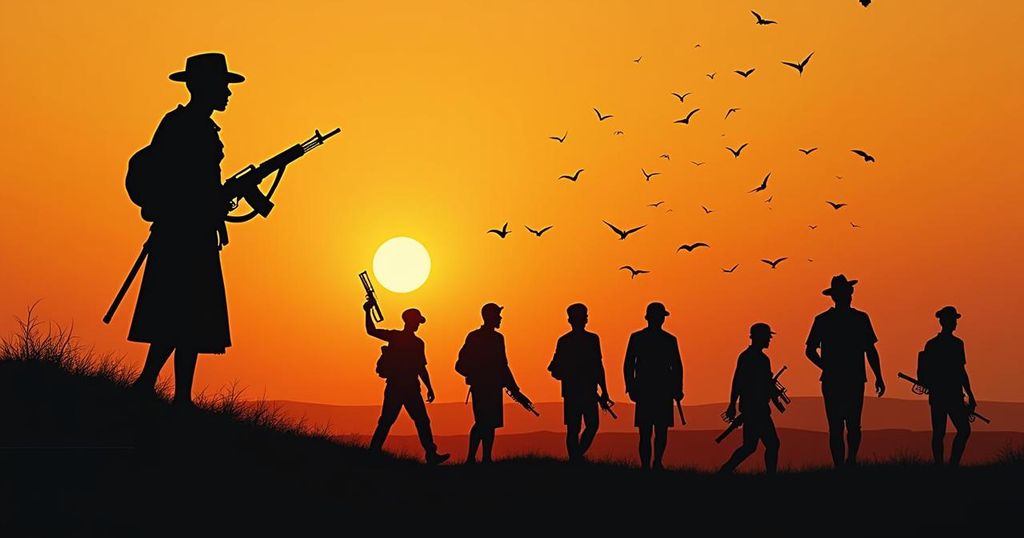The Ripple Effect of Mali’s Coup: Shifting Dynamics in West Africa
The 2020 coup in Mali initiated a series of military takeovers across West and Central Africa, with over ten coups recorded since then. This shift marks a significant deviation from the period of relative stability that preceded it, characterized by rising discontent against established governments, increased violence, and a pivot away from traditional Western allies towards support from Russia. The ineffective response of the ECOWAS regional bloc has also been critiqued as a contributing factor to this trend.
The military coup in Mali on August 18, 2020, marked a significant turning point in West and Central Africa, initiating a wave of instability marked by more than ten coup attempts since the coup. Following weeks of public protests against former President Aboubakar Keita, Malian soldiers executed the takeover with minimal resistance from the populace, who celebrated the ousting of a leader accused of corruption and negligence in handling a growing armed rebellion in the north. This event punctuated an era of relative political stability in Mali that had prevailed for nearly a decade, and it signaled the beginning of a troubling trend across the region. The aftermath of the coup saw a deteriorating situation, not only in Mali but also spilling over into neighboring countries such as Burkina Faso and Niger, which faced similar security challenges and political upheaval. The succession of military coups continued with notable incidents including Colonel Assimi Goita’s consolidation of power in Mali, Captain Mamady Doumbouya’s takeover in Guinea in 2021, and the elevation of Lieutenant Colonel Paul-Henro Damiba in Burkina Faso in early 2022. This pattern reflects a broader movement away from democratic ideals, showcasing an alarming resurgence of military rule reminiscent of past decades. Notably, the role of the regional body, the Economic Community of West African States (ECOWAS), has been critiqued for its ineffective response to this budding trend of coups, further eroding its authority in the region. The rising discontent with France, viewed by many as a neocolonial power, has also fueled the military regimes’ narratives, pivoting them towards Russia for military support amidst worsening security environments. The deployment of mercenaries from the Wagner Group in places like Mali and Burkina Faso underlines the geopolitical shift occurring in the region. As violence escalates, and human rights abuses continue under these new military administrations, the correlation between coup activity and increased civilian suffering raises critical questions about governance and stability in West Africa. Expert analysis underscores the role of military approaches in aggravating, rather than alleviating, security challenges. The complex interplay of local grievances, external influences, and regional politics now governs the uncertain trajectory of these nations, prompting a re-examination of international engagement in West Africa.
The situation in West Africa post-Mali’s coup in 2020 has transformed dramatically, reflecting a resurgence of military coups that have been largely absent for eight years prior. The trigger for the Malian coup involved widespread dissatisfaction over corruption and ineffective governance in the face of an armed insurgency. The regional implications of this event have been significant, leading to a wave of similar actions in neighboring nations characterized by political instability and security crises.
In summary, the 2020 coup in Mali has set off a chain reaction that has seen a resurgence of military rule in West and Central Africa, marked by a series of coups and political overhauls affecting multiple nations. The ongoing turmoil reflects deeper underlying grievances, the ineffectiveness of regional governance through ECOWAS, and a shifting geopolitical landscape wherein countries are turning away from former colonial powers towards new allies. The challenges posed by escalating violence and instability call for a critical reassessment of both regional and international approaches to governance and security in the area.
Original Source: www.aljazeera.com




Post Comment